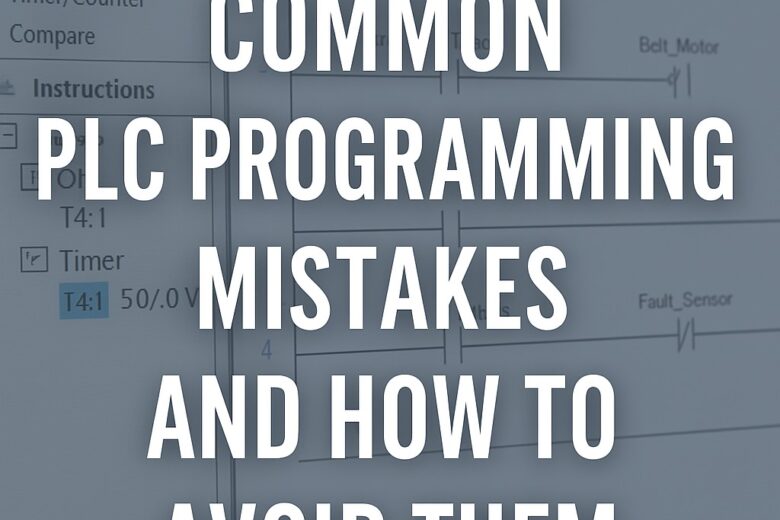Introduction:
Even seasoned engineers make mistakes in PLC programming. Some bugs are harmless, but others can cost production downtime, safety risks, or even equipment damage. The good news? Most mistakes are avoidable with the right habits.
Here are the top PLC programming mistakes and how you can avoid them like a pro.
1. Poor Tag Naming
Bad: M1, X1, T5
Better: Motor_Start_Command, Sensor_Bottle_Detected, Conveyor_Timer_Off
Why it matters: Clear tags make the program easier to read, debug, and hand over to another engineer.
2. No Comments in Logic
Mistake: Writing ladder logic or structured text without explaining what each rung or block does.
Fix: Add concise comments to explain:
- Purpose of logic
- Control assumptions
- Safety interlocks
3. Ignoring Error Handling
Mistake: Not programming what happens if a sensor fails or a motor doesn’t start.
Fix: Always include:
- Fault detection
- Timeouts
- Alarm flags
4. Overusing Timers
Mistake: Using timers to fix every issue — like sensor delays or process sequencing.
Fix: Combine timers with actual process feedback. Timers should complement logic, not replace it.
5. Hardcoding Setpoints
Mistake: Entering fixed values in logic (e.g., 1000ms delay or 80°C temp limit).
Fix: Store setpoints in variables or HMI-configurable tags for flexibility.
6. Not Using Simulation or Testing
Mistake: Uploading a program without testing it first.
Fix: Always test logic in a simulation environment or with a dry run before going live.
7. Skipping Documentation
Mistake: Delivering a working system with no I/O list, logic description, or change history.
Fix: Keep basic documentation — even a PDF with ladder screenshots and tag descriptions helps a lot.
Conclusion
Every PLC programmer has made at least one of these mistakes. But the best ones learn, improve, and standardize their approach. Keep your logic readable, test thoroughly, and always think from the next technician’s point of view.
Bonus: Want a free checklist for PLC programming reviews? We’re dropping it soon on PLCExpertHub.com!

